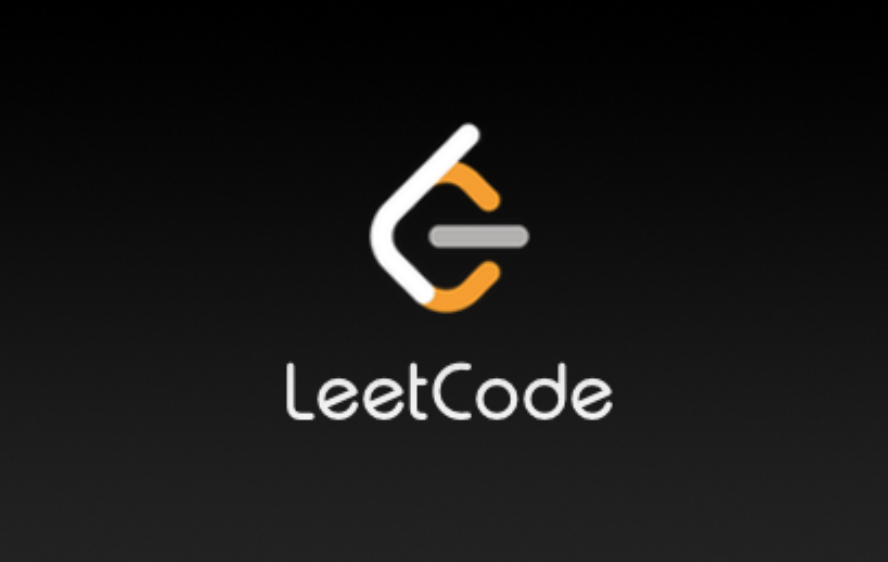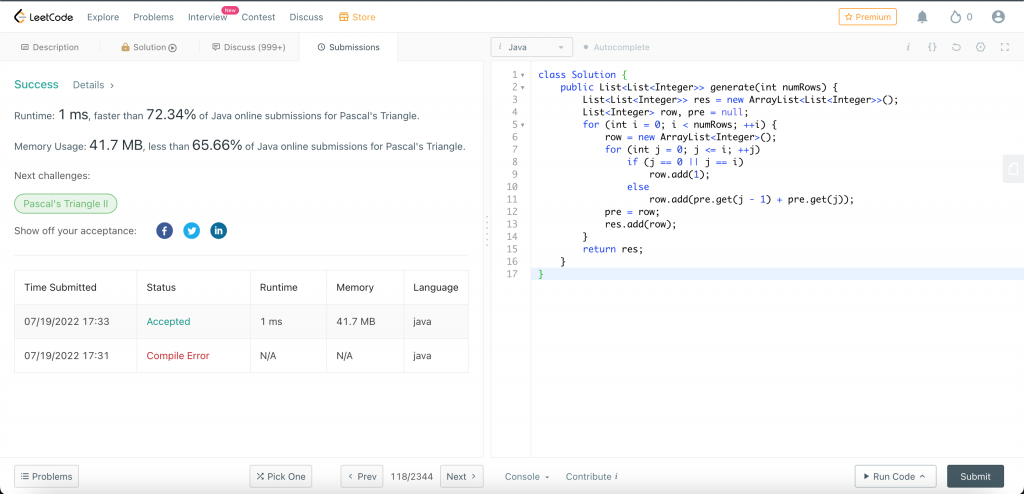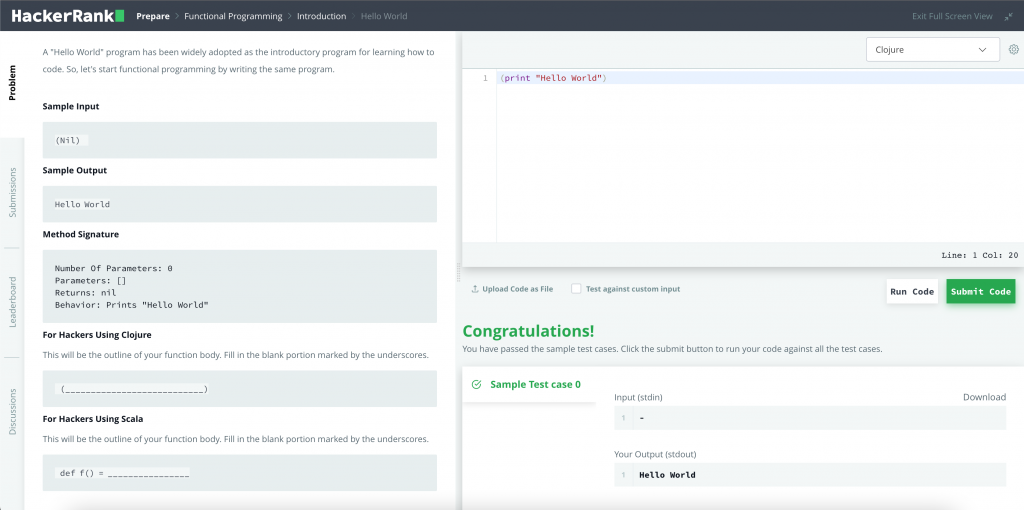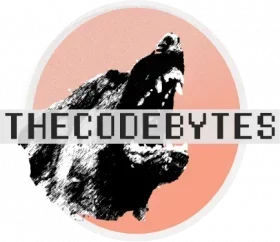HackerRank and LeetCode are two online competitive programming platforms where software engineers sharpen their programming knowledge. Both offer programmers the opportunity to become problem solvers and practice common algorithmic and data structure problems in preparation for an interview.
Let me start by saying that I have compared many coding challenge platforms such as CodeChef, Codewars, CheckIO, etc. and these are two of my all time favorites!
For good reason too, as both developers and recruiters alike have become more and more familiar with these platforms. Now making them the industry standard for coding interview prep. However, many programmers are curious about which is the best to better improve their skills and get a job.
Well, luckily for you, I have the answer you’re looking for!
A great way to decide which platforms are best for you is to compare or learn the differences between HackerRank and LeetCode. Then understand which one is better for your personal needs and goals.
Before we compare these two platforms, let’s start by explaining what HackerRank and LeetCode are individually.
About HackerRank?

HackerRank offers a platform where programmers can test their level of proficiency in various areas of computer programming. Hackerrank‘s main purpose is to help developers learn how to hone their coding and interview skills. The tools also allow recruiters to evaluate candidates’ coding abilities during the assessment and interview process. A tool that is lacking on LeetCode.
In HackRank, developers compete in programming challenges offered by HackerRank by attempting to solve algorithms that follow the guidelines. By taking part in these challenges, programmers level up both their account and their skills.
On HackerRank, programmers can find solutions to problems in many different computer science areas, such as machine learning, artificial intelligence, or algorithms. It’s unquestionably one of the best coding environments out there for a junior software developer to quickly learn and advance in specific domains.
This platform is the industry benchmark for assessing applicants’ developer skills, and over 2000 businesses use it globally.
About LeetCode

Another well-known website where programmers and software engineers can test their coding abilities is LeetCode.
LeetCode, like Hackerrank, aims to help software engineers who need to sharpen their abilities, broaden their knowledge, and get ready for technical interviews.
The questions on LeetCode support multiple programming languages, allowing you to answer them in the ones you are most familiar with and saving yourself the time-consuming and unnecessary task of learning new ones.
There are more than 1,800 questions available, and they are divided into three difficulty groups: easy, medium, and hard. Users can write, debug, and test their projects online using LeetCode’s playground, which supports 14 coding languages. Although some of these features are only available in premium.
LeetCode is an engaging coding platform that can help you sharpen your coding abilities and ace technical interviews.
Which platform is best when comparing LeetCode vs. HackerRank? That is the big question! Let’s get the results by comparing some of their features.
HackerRank VS LeetCode: Feature Comparison
Between the two, there are some clear distinctions. We will be using some of the features both of these programming platforms have to make these comparisons.
1. Cost To Use The Platform
First let’s talk about the cost of the two platforms because I think it is an important distinction to make.
HackerRank
The HackerRank platform is free for developers, so there is no fee to use it. The platform makes money from the companies that use it to find and evaluate candidates. Users must create a profile to access the questions and flexibly use the platform. So you never need to worry about paying for HackerRank.
LeetCode
LeetCode, on the other hand, does have quite a few premium features. It is very possible to use LeetCode for free and you will still get a ton out of it. However, it really is it’s premium features that make it shine. I wrote a very long and thought provoking review on LeetCode Premium here. Make sure to read it before you buy LeetCode premium because it may not be worth the money in your situation or you can get by with the free version. Overall, I do thing the premium features are worth it for many circumstances.
2. Programming Languages Availability
There is a huge discrepancy between the amount of usable programming language on HackerRank and LeetCode. Here is a breakdown of both:
LeetCode
Currently, LeetCode supports the following 16 programming languages:
- Bash
- C
- C#
- C++
- Go
- Java
- JavaScript
- Kotlin
- MySQL
- MS SQL
- Oracle
- PHP
- Python
- Ruby
- Rust
- Scala
- Swift
Most of these are major programming languages that would likely be used in your day to day job. It makes sense why LeetCode would include these languages.
HackerRank
Alternatively, HackerRank has a whopping 45+ programming languages are available for problem-solving on the platform. Here are just a few:
- Clojure
- C++
- Erlang
- C#
- Java 8,
- Go
- Haskill
- Python 3
- JavaScript
- Kaitlin
- LOLCODE
- Lua
- Objective-C
- Perl
- PHP
- Type 3
- Ruby,
- Scala
- Swift
- etc.
Comparison
Although you may think that HackerRank is the clear winner in terms of amount of programming languages available. However, I think the amount of languages on HackerRank is a bit of overkill. Learning how to write in LOLCODE is not going to help you land a six figure job.
Although it might be a fun side project to learn an esoteric programming language or something like PureScript, I think both sites have more than the adequate availability of programming languages necessary to choose from for coding interviews.
3. Code Editor Features
LeetCode

With a white background and basic syntax, the LeetCode code editor is fairly conventional, luckily they now have a dark mode in beta. If it really bugs you, you can even install a 3rd-party custom theme.
Depending on the query and the language you select, the editor includes default code templates for your convenience.
With the LeetCode premium features, the code editor also comes with a debugger, increased load speeds on unit tests, additional playgrounds and a couple other goodies that I found to be (only marginally) useful.
HackerRank

The HackerRank Tests’ code editor has an Intellisense-like autocomplete feature that is akin to that of more recent editors like Eclipse or Visual Studio. A feature you need to pay for in LeetCode.
This feature enables candidates to speed up their coding and cut down on keyboard input time while completing HackerRank Tests by using auto-completion syntax pop-ups. HackerRank recently debuted its dark mode theme, though the code editor is still fairly conventional.
Comparison
Overall, these two code editors are pretty comparable. They have the same question, editor layout and similar features. I would argue that the HackerRank editor is better if you go for the free version of LeetCode because it includes intellisense out of the box for free.
However, if you choose to pay for LeetCode, you do get a few other benefits like a debugger, and increased load speeds on unit tests.
Additionally, one thing that I really liked about the LeetCode editor is that they mention your runtime and memory usage. Which, if you study algorithms and data structures, you will know is really important! That way you can see how much time and memory your algorithm takes and how it compares with other solutions.
For that reason, I think the LeetCode editor features far outweighs HackerRank.
4. Coding Problems
LeetCode
There are over 1400 problems on LeetCode, with levels of difficulty ranging from easy – hard. Although I did find this rating system a bit arbitrary. There are certainly easy – medium questions that should be hard and vice versa.
Top interview questions, machine learning, and other hot topics are among the featured subjects. They regularly hold competitions that range across a wide range of topics, including distributed systems, data structures, databases, and artificial intelligence. Overall, there is more than enough on the LeetCode platform to help you prepare for interviews.
HackerRank
Users submit a large portion of the challenges on HackerRank. The subjects on HackerRank are really well laid out and allow you to progressively build up and try harder problems from easier ones. Some of these subjects include algorithms, data structures, mathematics, programming languages, AI, and databases.

In contrast to LeetCode, which is more focused on algorithmic questions, HackerRank is more focused on general learning. It offers a variety of challlenges ranging from twenty to a few hundred depending on the topic.
Comparison
Overall, it seems like there is a clear choice between LeetCode and HackerRank depending on what kind of coding problems you are looking for. If you are trying to learn a new language, functional programming, mathematics, regex etc. HackerRank is the clear choice. They have a ton of great information available and the subjects are clearly laid out for you.
Alternatively, if you are just focused on interview prep and want to learn data structures and algorithms, LeetCode is the clear choice. LeetCode is the #1 site where interviewers find their interview questions.
Meaning you are more likely to find exact answers being asked in interviews within LeetCode. They also have an entire section on the top 100 interview questions. Not to mention their premium features that allow you to sort questions asked by companies like Google and Facebook and by frequency seen in an interview. Incredibly helpful for landing your dream job!
5. Certificate
LeetCode
There is currently no LeetCode challenge completion certificate available.
HackerRank
If you’re looking for certificates to show employers, HackerRank has you covered. React, Angular, JavaScript, Python, and Java skills are just a few of the certifications offered by HackerRank. All you need to do is take a 60 minute test and you get a little piece of virtual paper stating how smart you are!
Comparison
Obviously HackerRank has LeetCode beat on its availability of certificates. However, I personally don’t find them very useful in getting a new job. So in my opinion, it isn’t a great reason by itself to switch over to HackerRank.
6. Discussion Boards
LeetCode and HackerRank both provide a thorough discussion forum where you can post questions and ask other developers for advice. If you are ever stuck on a problem the answer and/or explanation is almost always posted on the discussion boards. If not, you can always ask specific questions yourself.
Summary
So, which is platform is better to improve your programming skills, HackerRank or LeetCode?
Well, as you can see from the comparisons above, LeetCode and HackerRank are pretty equally matched in many domains such as their programming language availability, text editor, and additional features.
The thing you should be most concerned with between the two is why you are using the platform. Are you more concerned with learning a specific skill like functional programming, specific languages, databases, or linux? Then HackerRank is the obvious choice. Questions are laid out from easiest to hardest and you can make some real progress in these domains without having to build your own projects.
On the other hand, if you are learning DSA to land your next dream job, you should choose LeetCode. The platforms focus on data structures and algorithms and is trusted from top FAANG companies like Google, Amazon and Facebook meaning it should be the only place you go to to study interview problems.
That’s about it! My HackerRank vs LeetCode comparison. Hopefully you now understand the main differences between HackerRank and LeetCode. If you are looking to become a self-taught web developer, check out my free resources here.
Happy coding!
